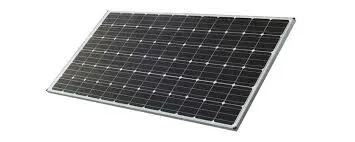Three-phase 48V inverter for efficient power conversion and management solutions
Understanding 3-Phase 48V Inverters A Comprehensive Overview
In the ever-evolving landscape of renewable energy and power management, inverters play a crucial role in converting direct current (DC) into alternating current (AC). Among the various types of inverters available, 3-phase 48V inverters have garnered significant interest due to their efficiency and applicability in various commercial and industrial settings. This article provides a comprehensive overview of 3-phase 48V inverters, focusing on their functionality, benefits, applications, and considerations for selection.
What is a 3-Phase 48V Inverter?
A 3-phase 48V inverter is a device that converts 48 volts of DC power into three-phase AC power. This type of inverter is commonly used in applications where three-phase power is essential, such as industrial machinery, commercial buildings, and renewable energy systems like solar power. The primary advantage of a 3-phase system is its ability to deliver higher power levels more efficiently than single-phase systems.
How Do 3-Phase Inverters Work?
The fundamental operation of a 3-phase inverter involves several key components a power source (DC supply), switching devices (such as IGBTs or MOSFETs), and control systems. The inverter starts by taking the DC input, usually from batteries or solar panels, and then uses power electronics to convert this DC power into AC.
The control system modulates the switching of the devices in such a way that it generates the required three-phase output. Each phase in a 3-phase system is 120 degrees apart, which helps in maintaining balanced loads and reducing voltage fluctuations, providing a stable power supply.
Benefits of 3-Phase 48V Inverters
1. Efficiency 3-phase systems typically deliver higher efficiency compared to single-phase systems. This is particularly important in industrial applications where minimizing energy loss translates to cost savings.
2. Load Distribution With three-phase power, loads can be distributed evenly across all phases, leading to less wear on equipment and improved performance.
3. Higher Power Capacity 3-phase inverters can handle larger loads effectively, making them suitable for industrial machinery and large-scale renewable energy systems.
4. Reduced Voltage Drop The design of a 3-phase system minimizes the voltage drop across long transmission distances, ensuring that the equipment receives consistent power.
5. Improved Startup Torque Three-phase motors are known for their high starting torque, making them ideal for heavy-duty applications.
Applications of 3-Phase 48V Inverters
3 phase 48v inverter

3-phase 48V inverters find a wide range of applications across various industries
- Renewable Energy Systems They are commonly used in solar energy systems, where a bank of batteries provides the DC input, and a 3-phase inverter converts it for use by the grid or onsite equipment.
- Industrial Machinery Many industrial processes depend on the consistent power supply that 3-phase inverters can deliver, making them vital in manufacturing and processing plants.
- Electric Vehicles and Charging Stations With the rise of electric vehicles, 3-phase inverters are integral in EV charging stations, providing efficient power conversion for fast charging.
- HVAC Systems Heating, ventilation, and air conditioning systems in commercial buildings often leverage 3-phase inverters for better performance and energy savings
.Considerations When Selecting a 3-Phase 48V Inverter
When choosing a 3-phase 48V inverter, several factors should be considered
1. Power Rating Ensure that the inverter can handle the peak and continuous load requirements of your application.
2. Efficiency Rating Look for inverters with high efficiency ratings to maximize energy savings.
3. Control Features Advanced control features such as MPPT (Maximum Power Point Tracking) in solar applications can significantly enhance performance.
4. Durability and Reliability Industrial environments demand robust equipment; thus, look for inverters with a reputation for reliability.
5. Compliance and Certification Ensure that the inverter meets all relevant electrical safety standards and is certified for use in your region.
Conclusion
In summary, 3-phase 48V inverters are integral to modern power systems, especially in renewable energy and industrial applications. Their ability to efficiently convert DC to balanced AC makes them indispensable for achieving energy efficiency and operational reliability. As technology continues to advance, the capabilities and applications of 3-phase inverters will likely expand further, contributing significantly to a sustainable energy future.
-
Unlocking Energy Freedom with the Off Grid Solar InverterNewsJun.06,2025
-
Unlock More Solar Power with a High-Efficiency Bifacial Solar PanelNewsJun.06,2025
-
Power Your Future with High-Efficiency Monocrystalline Solar PanelsNewsJun.06,2025
-
Next-Gen Solar Power Starts with Micro Solar InvertersNewsJun.06,2025
-
Harnessing Peak Efficiency with the On Grid Solar InverterNewsJun.06,2025
-
Discover Unmatched Efficiency with the Latest String Solar InverterNewsJun.06,2025







